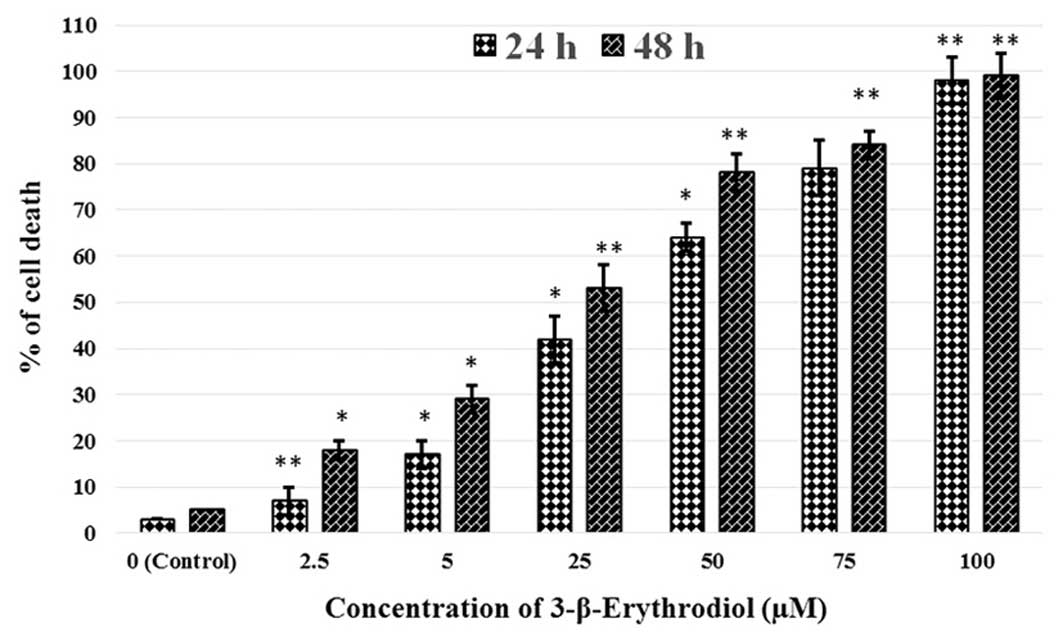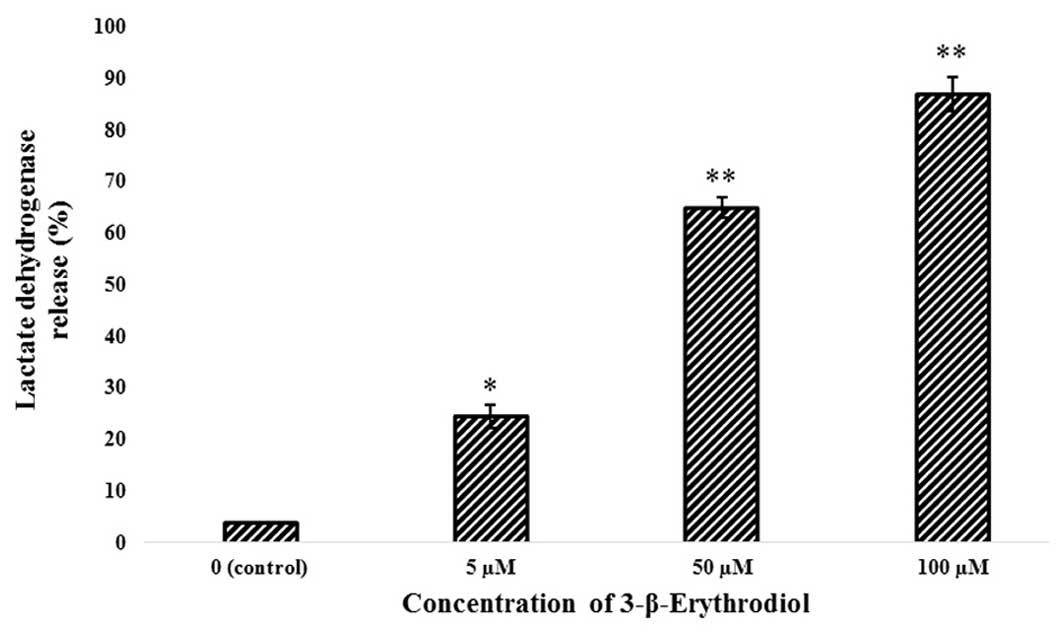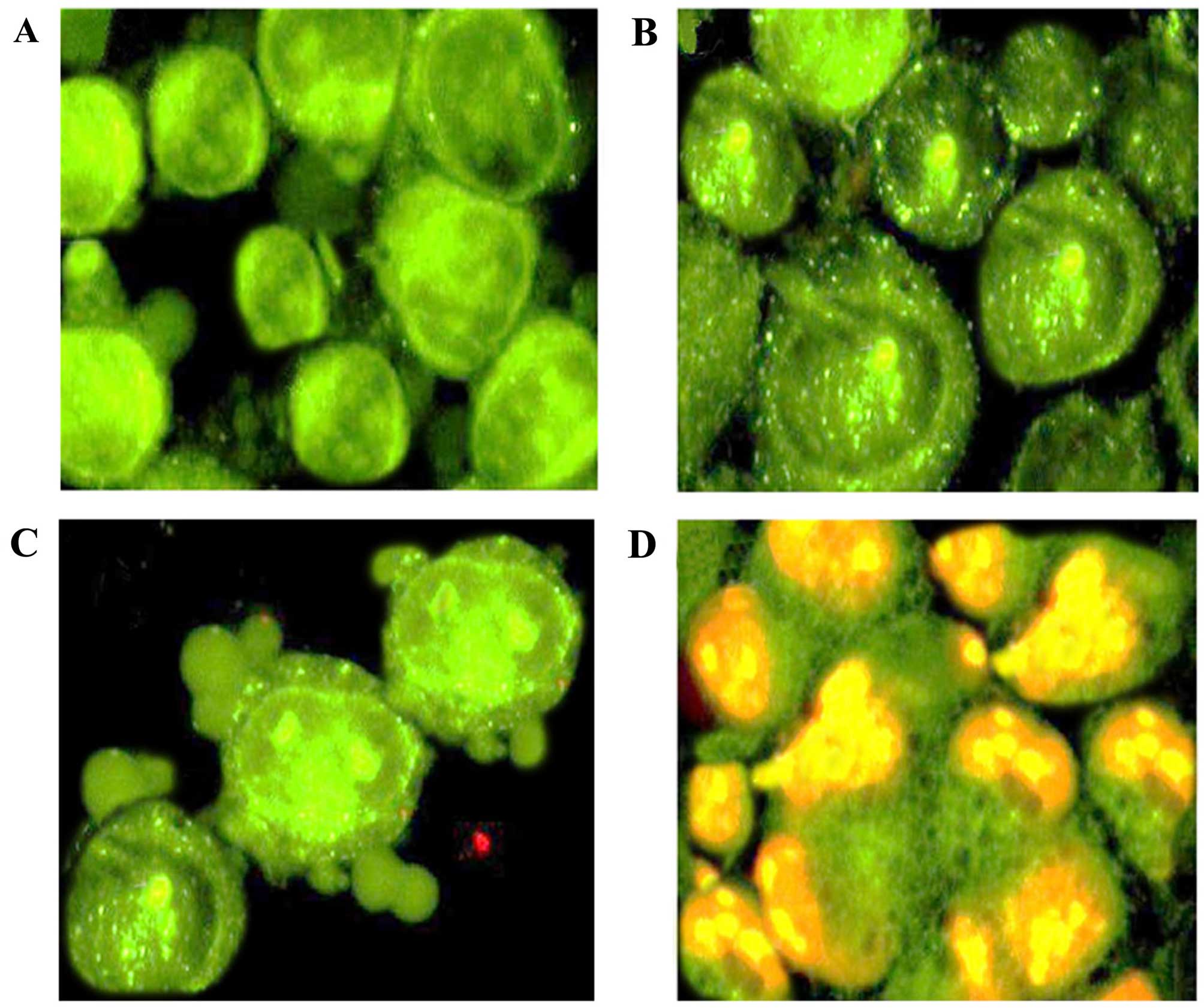|
1
|
Ferlay J, Shin HR, Bray F, Forman D,
Mathers C and Parkin DM: Estimates of worldwide burden of cancer in
2008: GLOBOCAN 2008. Int J Cancer. 127:2893–2917. 2010. View Article : Google Scholar
|
|
2
|
Yang L, Parkin DM, Ferlay J, Li L and Chen
Y: Estimates of cancer incidence in China for 2000 and projections
for 2005. Cancer Epidemiol Biomarkers Prev. 14:243–250.
2005.PubMed/NCBI
|
|
3
|
Hwang H, Dwyer J and Russell RM: Diet,
Helicobacter pylori infection, food preservation and gastric cancer
risk: Are there new roles for preventative factors? Nutr Rev.
52:75–83. 1994. View Article : Google Scholar : PubMed/NCBI
|
|
4
|
Rasul A, Yu B, Yang LF, Ali M, Khan M, Ma
T and Yang H: Induction of mitochondria-mediated apoptosis in human
gastric adenocarcinoma SGC-7901 cells by kuraridin and
Norkurarinone isolated from Sophora flavescens. Asian Pac J Cancer
Prev. 12:2499–2504. 2011.
|
|
5
|
Baeza MR, Giannini TO, Rivera SR, González
P, González J, Vergara E, del Castillo C, Madrid J and Vinés E:
Adjuvant radiochemotherapy in the treatment of completely resected,
locally advanced gastric cancer. Int J Radiat Oncol Biol Phys.
50:645–650. 2001. View Article : Google Scholar : PubMed/NCBI
|
|
6
|
Longley DB, Harkin DP and Johnston PG:
5-fluorouracil: Mechanisms of action and clinical strategies. Nat
Rev Cancer. 3:330–338. 2003. View
Article : Google Scholar : PubMed/NCBI
|
|
7
|
Jemal A, Center MM, DeSantis C and Ward
EM: Global patterns of cancer incidence and mortality rates and
trends. Cancer Epidemiol Biomarkers Prev. 19:1893–1907. 2010.
View Article : Google Scholar : PubMed/NCBI
|
|
8
|
Newman DJ, Cragg GM and Snader KM: The
influence of natural products upon drug discovery. Nat Prod Rep.
17:215–234. 2000. View
Article : Google Scholar : PubMed/NCBI
|
|
9
|
Newman DJ and Cragg GM: Natural products
as sources of new drugs over the last 25 years. J Nat Prod.
70:461–477. 2007. View Article : Google Scholar : PubMed/NCBI
|
|
10
|
Oberlies NH and Kroll DJ: Camptothecin and
taxol: Historic achievements in natural products research. J Nat
Prod. 67:129–135. 2004. View Article : Google Scholar : PubMed/NCBI
|
|
11
|
van Der Heijden R, Jacobs DI, Snoeijer W,
Hallard D and Verpoorte R: The Catharanthus alkaloids:
Pharmacognosy and biotechnology. Curr Med Chem. 11:607–628. 2004.
View Article : Google Scholar : PubMed/NCBI
|
|
12
|
Xue HZ, Lu ZZ, Konno C, Soejarto DD,
Cordell GA, Fong HHS and Hodgson W:
3-Beta-(3,4-dihydroxycinnamoyl)-erythrodiol and
3-beta-(4-hydroxycinnamoyl)-erythrodiol from Larrea tridentata.
Phytochemistry. 27:233–235. 1988. View Article : Google Scholar
|
|
13
|
Arnold C: In A guide to Medicinal Plants
of United States. The New York Times Book Co; 93. 1980
|
|
14
|
Khare CP: Indian Medicinal Plants. An
illustrated Dictionary. Springer; pp. p2422007
|
|
15
|
Li TSC: Chinese and Related North American
Herbs - Phytopharmacology and Therapeutic values. CRC Press; Boca
Raton, London, New York, Washington: pp. p1792002
|
|
16
|
Ling Y, Chen Y and Shih C: Flora
Reipublicae Sinicae. Tomus 74. Science Press; Beijing: pp.
p3481985
|
|
17
|
Duke JA, Bogenschutz-Godwin MJ and Ottesen
AR: Dukes Hand Book of Medicinal Plants of Latin America. CRC
Press; Boca Raton, London, New York: pp. p2252009
|
|
18
|
Bohlmann F and Wegner P: Three diterpenes
from Conyza podocephala. Phytochemistry. 21:1693–1695. 1982.
View Article : Google Scholar
|
|
19
|
Xu LP, Guo DA, Liu JS and Zheng JH: A New
transclerodane diterpene lactone from Conyza blinii. Heterocycles.
51:3605–3610. 1999.
|
|
20
|
Mukhtar N, Iqbal K, Anis I and Malik A:
Sphingolipids from Conyza canadensis. Phytochemistry. 61:1005–1008.
2002. View Article : Google Scholar : PubMed/NCBI
|
|
21
|
Mukhtar N, Iqbal K and Malik A: Novel
sphingolipids from Conyza canadensis. Chem Pharm Bull (Tokyo).
50:1558–1560. 2002. View Article : Google Scholar
|
|
22
|
Lenfeld J, Motl O and Trka A:
Anti-inflammatory activity of extracts from Conyza canadensis.
Pharmazie. 41:268–269. 1986.PubMed/NCBI
|
|
23
|
Czeczot H, Tudek B, Kusztelak J, Szymczyk
T, Dobrowolska B, Glinkowska G, Malinowski J and Strzelecka H:
Isolation and studies of the mutagenic activity in the Ames test of
flavonoids naturally occurring in medical herbs. Mutat Res.
240:209–216. 1990. View Article : Google Scholar : PubMed/NCBI
|
|
24
|
Ding Y, Su Y, Guo H, Yang F, Mao H, Gao X,
Zhu Z and Tu G: Phenylpropanoyl esters from Horseweed (Conyza
canadensis) and their inhibitory effects on catecholamine
secretion. J Nat Prod. 73:270–274. 2010. View Article : Google Scholar : PubMed/NCBI
|
|
25
|
Hrutfiord BF, Hatheway WH and Smith DB:
Essential oil of Conyza canadensis. Phytochemistry. 27:1858–1860.
1988. View Article : Google Scholar
|
|
26
|
Slater AF, Stefan C, Nobel I, van den
Dobbelsteen DJ and Orrenius S: Signalling mechanisms and oxidative
stress in apoptosis. Toxicol Lett. 82–83:149–153. 1995. View Article : Google Scholar
|
|
27
|
Qiao L and Wong BC: Targeting apoptosis as
an approach for gastrointestinal cancer therapy. Drug Resist Updat.
12:55–64. 2009. View Article : Google Scholar : PubMed/NCBI
|
|
28
|
Huang HL, Fang LW, Lu SP, Chou CK, Luh TY
and Lai MZ: DNA-damaging reagents induce apoptosis through reactive
oxygen species-dependent Fas aggregation. Oncogene. 22:8168–8177.
2003. View Article : Google Scholar : PubMed/NCBI
|
|
29
|
Wu K, Nie Y, Guo C, Chen Y, Ding J and Fan
D: Molecular basis of therapeutic approaches to gastric cancer. J
Gastroenterol Hepatol. 24:37–41. 2009. View Article : Google Scholar : PubMed/NCBI
|
|
30
|
Mao Y, Song G, Cai Q, Liu M, Luo H, Shi M,
Ouyang G and Bao S: Hydrogen peroxide-induced apoptosis in human
gastric carcinoma MGC803 cells. Cell Biol Int. 30:332–337. 2006.
View Article : Google Scholar : PubMed/NCBI
|
|
31
|
Martín R, Ibeas E, Carvalho-Tavares J,
Hernández M, Ruiz-Gutierrez V and Nieto ML: Natural triterpenic
diols promote apoptosis in astrocytoma cells through ROS-mediated
mitochondrial depolarization and JNK activation. PLoS One.
4:e59752009. View Article : Google Scholar : PubMed/NCBI
|
























